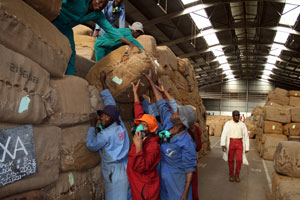Zimbabwe is breathing a collective sigh of relief after a proposal on low-nicotine tobacco never made it to the discussion table at a recent international meeting on tobacco control, according to a story by Fidelity Mhlanga for the Zimbabwe Standard.
The seventh meeting of the Conference of the Parties (CoP7) to the World Health Organization’s Framework Convention on Tobacco Control (FCTC) was held in India between November 7 and 12.
Some observers had been expecting CoP7 to adopt recommendations to reduce the nicotine content in cigarettes to a maximum of 0.4 mg.
But Zimbabwe Tobacco Association chief executive Rodney Ambrose said the FCTC had been blocked from steam-rolling the proposals without consultations.
“As will be noted, issues around nicotine reduction were not resolved,” he said.
“The matter was not even tabled for further debate at the next CoP8 as this was simple inadequate preparedness by the FCTC.
“There is a growing, high level of alertness by many parties calling for transparent, scientific methodologies and all-inclusive approaches on all FCTC matters.
“This has derailed the FCTC’s attempts to steam-roll many draconian, non-consultative regulations.”
Ambrose, who attended the conference in India, said they made it clear to the World Health Organization that they would not accept a framework that was not inclusive.
“Our message to the WHO FCTC remains: ‘include us in all your deliberations and decisions’. Until then, we will continue to resist their attempts to unfairly and unilaterally regulate our industry,” he said.
Tobacco Industry Marketing Board CEO Andrew Matibiri echoed Ambrose’s sentiments, adding that the conference had felt that there was no adequate information to reach a fair decision on the matter.
Tobacco is one of Zimbabwe’s biggest foreign currency earners.

